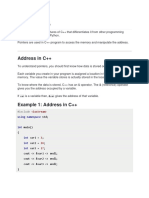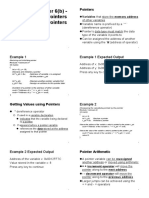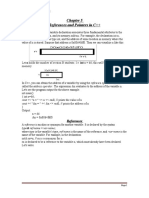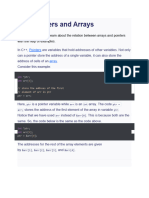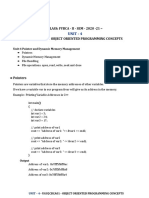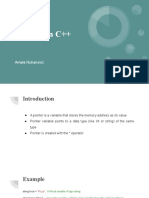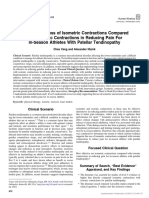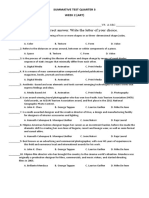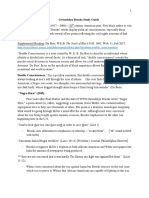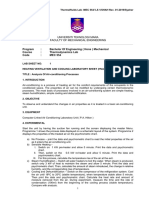0% found this document useful (0 votes)
33 views13 pagesC Pointers Module
C++ pointers are variables that store the memory addresses of other variables and can be used to access and modify the values stored at those addresses. Pointers can also store the address of cells of an array and can be used to point to every element of the array. Common mistakes when working with pointers include assigning a pointer the value of a variable instead of the address of the variable and dereferencing a pointer before assigning an address to it.
Uploaded by
samanthachua155Copyright
© © All Rights Reserved
We take content rights seriously. If you suspect this is your content, claim it here.
Available Formats
Download as PDF, TXT or read online on Scribd
0% found this document useful (0 votes)
33 views13 pagesC Pointers Module
C++ pointers are variables that store the memory addresses of other variables and can be used to access and modify the values stored at those addresses. Pointers can also store the address of cells of an array and can be used to point to every element of the array. Common mistakes when working with pointers include assigning a pointer the value of a variable instead of the address of the variable and dereferencing a pointer before assigning an address to it.
Uploaded by
samanthachua155Copyright
© © All Rights Reserved
We take content rights seriously. If you suspect this is your content, claim it here.
Available Formats
Download as PDF, TXT or read online on Scribd
/ 13


